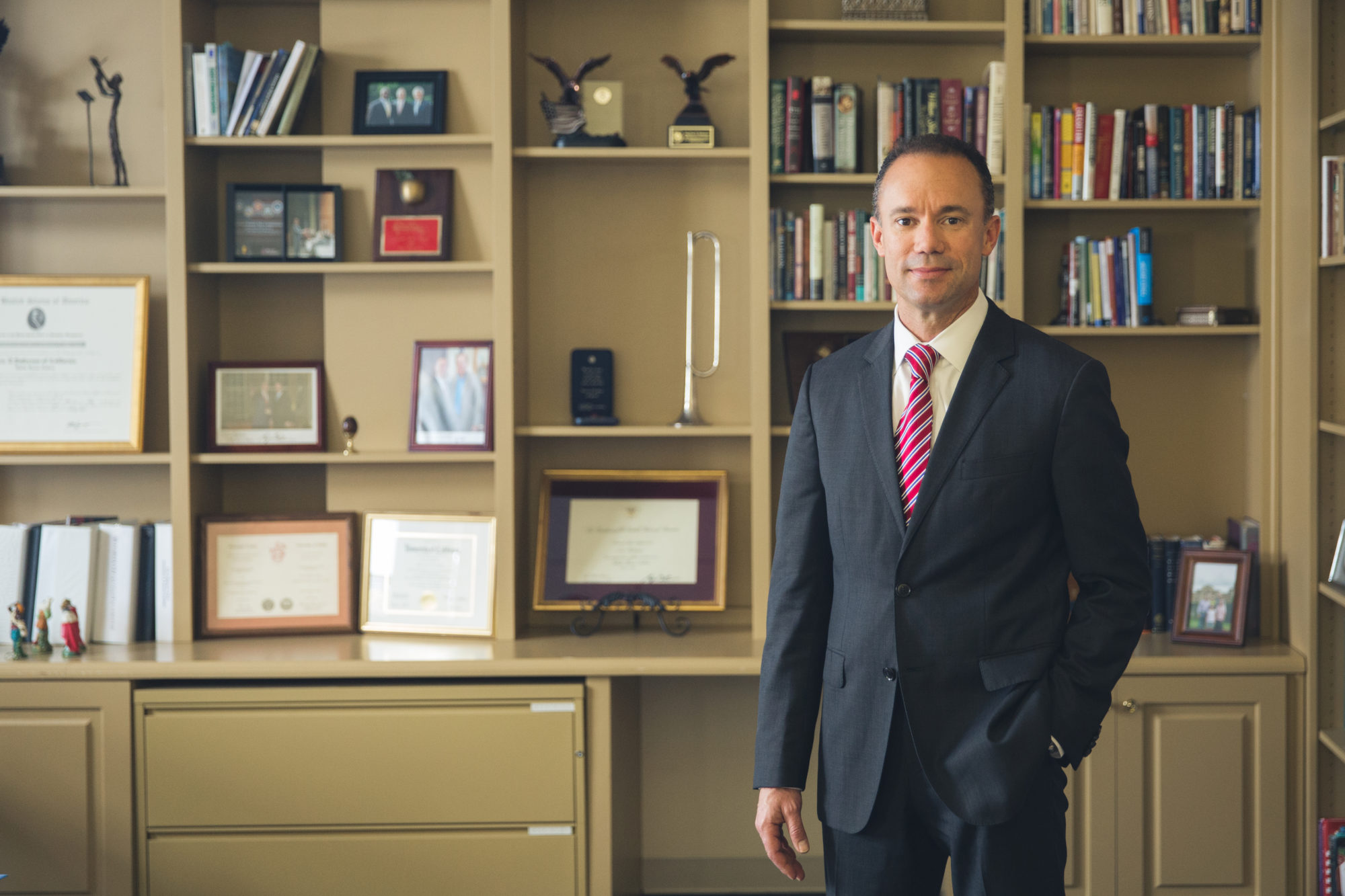President Biden’s 2024 State of the Union speech addressed one of the great flashpoints of our times regarding Russia and its neighbors. But the speech fell short in articulating the war of ideas that lie at the heart of Russia’s aggression, China’s belligerence, and the assault on freedom by Leftist regimes in our own hemisphere.
Many were surprised when President Biden invoked Ronald Reagan: “It wasn’t that long ago when a Republican President, Ronald Reagan, thundered, ‘Mr. Gorbachev, tear down this wall.’” Biden was calling for steadfastness in the Western alliance supporting Ukraine against Russian imperial aims.
But Biden’s speech lacked recognition of the ideological nature of America’s greatest foreign policy challenges. In that same June 12, 1987 speech where Reagan called for the tearing down of the Berlin Wall, he differentiated the models of freedom and totalitarianism:
Perhaps this gets to the root of the matter, to the most fundamental distinction of all between East and West. The totalitarian world produces backwardness because it does such violence to the spirit, thwarting the human impulse to create, to enjoy, to worship. The totalitarian world finds even symbols of love and of worship an affront.
Sadly, nothing in the State of the Union pointed to the eerily similar challenges we face today.
What drives Putin to constantly challenge international borders and the internal politics of their neighbors? Consider the following examples: the cyber-attack on NATO member Estonia (2007), the invasions of Georgia (2008), Ukraine’s Crimea (2014), Ukraine (2022), and occupations, in Abkhazia, Azerbaijan, Kazakhstan, Transnistria, and elsewhere, or foreign deployments to Syria or Wagner mercenaries in several African countries.
A major part of Moscow’s rationale for intervening in its neighbors’ affairs, whether by cyber, information warfare or direct military assault, is its fear of democracy. Putin seems unwilling to accept democracy on Russia’s border and views it as an existential threat to his rule. For example. Russia’s other 2022 intervention, in Kazakhstan, propped up an authoritarian leader against pro-democracy activists.
Russia today models its Soviet predecessor. A small group of elites manage what Marxists would call “the means of production,” i.e. the major elements of the national economy. They intervene in the affairs of their neighbors and have profoundly restricted fundamental freedoms at home such as freedom of speech, religion, press, assembly, and private property. Like Stalin and other Soviet rulers, show trials, assassinations, torture, and imprisonment in penal camps are the tools Putin uses to instill fear to maintain control. We’ve seen it most recently demonstrated in what was almost certainly the murder of Alexei Navalny in a Russian penal colony.
The largest Communist country in the world, China, was largely neglected in the State of the Union. To be sure, President Biden noted that there is a level of economic competition between the U.S. and China. But, he had little to say that reassured allies such as the Philippines, South Korea, Japan, and others that the US is a reliable ally, particularly after the debacle in Afghanistan.
But the greater problem is this: we are not just in an economic competition over market shares in batteries and computer chips. China knows, even if Washington doesn’t, that the true contest is an ideological confrontation with Western values of individual liberty, human rights, private property, religious freedom, and limits on government power.
The past 15 years of rule by President Xi have seen a remarkable reinvestment not just in China’s surveillance state, but also in the ideological rationale for the Chinese Communist Party (CCP). This is why Beijing has created an entire ideological infrastructure known as “Xi Jinping Thought” (Xi’ism), or, in its more formal name, “Xi Jinping Thought on Socialism with Chinese Characteristics for a New Era.” Here is how President Xi described it in 2013:
First of all: Socialism with Chinese characteristics is socialism, not any other “ism.” The guiding principles of scientific socialism thus cannot be abandoned. Our Party has always emphasized adherence to the basic principles of scientific socialism, but adapted to the particular conditions of China. This means that socialism with Chinese characteristics is socialism, not some other doctrine… It was Marxism-Leninism and Mao Zedong Thought that guided the Chinese people out of the long night and established a New China, and it was socialism with Chinese characteristics that led to the rapid development of China…
President Xi’s ideology seeks to legitimize the draconian rule of the CCP in China and its treatment of its neighbors. Xi Thought openly argues that the Western liberal order protecting individual human rights is decadent, ineffective, and even dangerous. Xi clearly gets the war of ideas between East and West; the Biden speech does not.
In Berlin, Reagan got it right: whether in Russia, China, Venezuela, or Nicaragua, totalitarians do violence to their citizens and neighbors. As Marx stated in his Manifesto “They [communists] openly declare that their ends can be attained only by the forcible overthrow of all existing social conditions.” Those conditions are the freedoms and Western values we hold dear and totalitarians fear. The challenge for the US today is not just economic or military competition. At heart, this is a struggle like the Cold War between two competing world views of the nature of human beings, human rights, the structure of society, economics, and the purpose of government. We will continue to lose ground to these regimes until we recognize this fundamental truth and argue convincingly for a better path of freedom and liberty.







 Sponsor a student for Christianity & National Security 2024
Sponsor a student for Christianity & National Security 2024